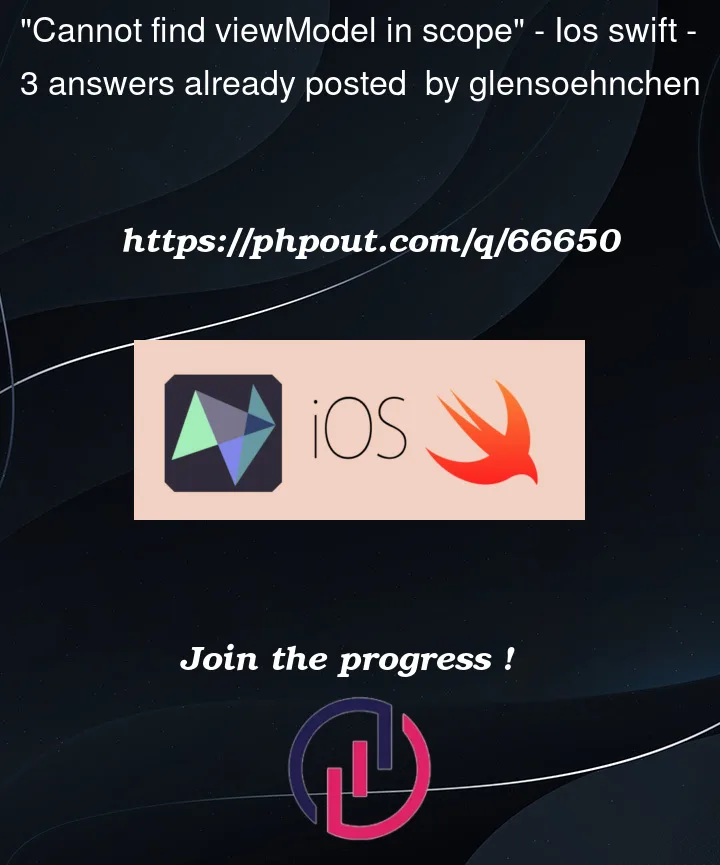I am starting with SwiftUI coding and making some projects, everything worked fine but then the error poped up "Cannot find viewModel in scope"
I looked in the code but in my opinion is the viewModel in scope.
Here is my code:
import FirebaseAuth
class AppViewModel: ObservableObject {
let auth = Auth.auth()
}
}
struct ContentView: View {
@EnvironmentObject var viewModel: AppViewModel
var body: some View {
NavigationView {
if viewModel.signedIn {
Text("You are Signed In")
} else {
SignInView()
}
}
.onAppear {
viewModel.signedIn = viewModel.isSignedIn
}
}
}
struct SignInView: View {
var body: some View {
VStack {
Button("Sign-In"){
guard !email.isEmpty, !password.isEmpty else {
return
}
**viewModel.signIn(email: email, password: password)**
}
}
}
}```




3
Answers
You will need to pass in the viewModel into the
SignInView. This view might be shown by the ContentView which holds the viewModel, but the SignInView itself does not know what the viewModel is or where to get it from.On the "how":
Doing that, the view now knows it needs a parameter on its initializer. You will now get a compiler error on the place where you use the
SignInView. Now just change that line toSignInView(viewModel: viewModel)and you should be good to go.Declaring the
EnvironmentObjectdoesn’t create its instance. It just says that you have set.environmentObjectsomewhere above in the hierarchy and that you can use it in this view. However if you get the error you obviously haven’t set it.Alternatively you can use
@StateObjectto define viewModel available to that view, but even then it won’t be instances unless you instance it in the code or in its declaration.try this approach, where you declare a
@StateObject var viewModel = AppViewModel()in your App, and pass it down to all other views: